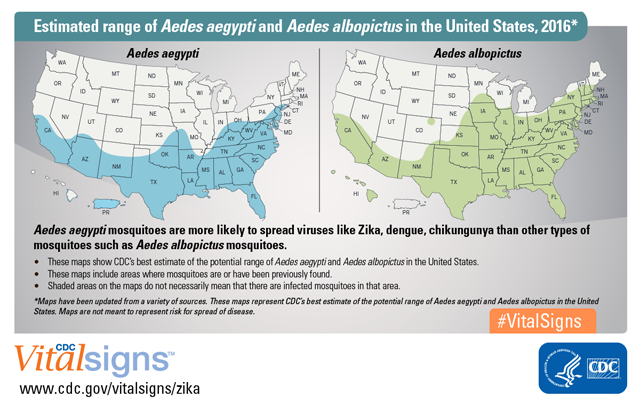
April 4, 2016
By: Centers for Disease Control and Prevention (CDC)
Mosquitoes are the deadliest animals in the world because of the diseases they spread. The Zika virus disease may spread through mosquito bites in some states later this spring and summer. A female mosquito infected with Zika can continue biting people over its lifespan of about 30 days. The latest CDCVital Signs report provides timely information about Zika, including prevention and transmission.In past outbreaks, most people infected with Zika have not gotten sick. So, people may not even know they are infected. The greatest risk is to a pregnant woman’s fetus. If a pregnant woman is infected with Zika, she can pass the virus to her fetus. Zika has been linked to microcephaly, a serious birth defect that results in the baby being born with a smaller brain, which can lead to medical problems and impaired development.
Zika can also be passed from an infected man during sex. The man gets infected by a mosquito bite and spreads it to his partner through unprotected sex.























.jpg)












No hay comentarios:
Publicar un comentario